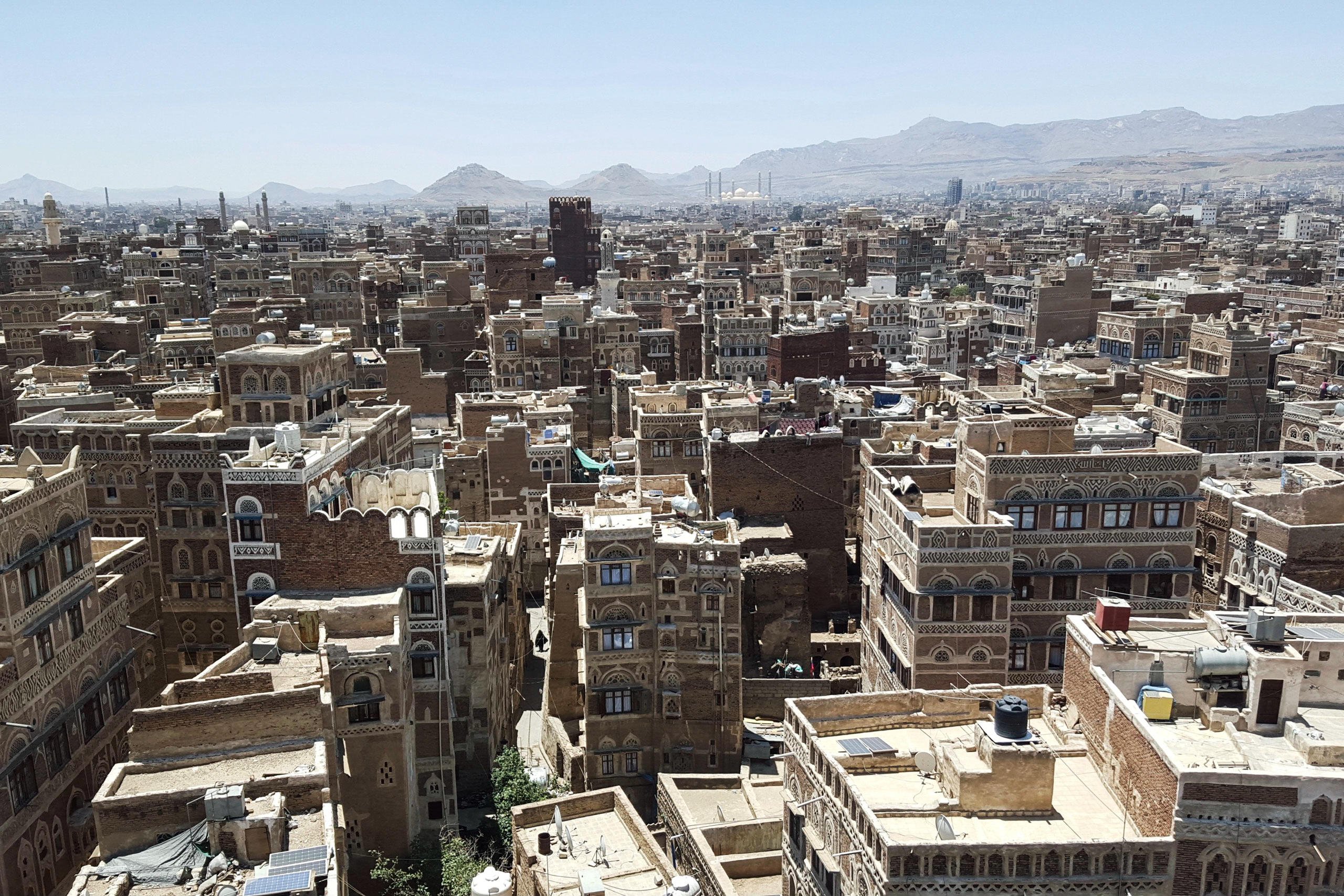 Written by Alvhild Stromme, Media Adviser for the Norwegian Refugee Council (NRC). She has spent years in Yemen and recently visited NRC’s programme in the country.
Written by Alvhild Stromme, Media Adviser for the Norwegian Refugee Council (NRC). She has spent years in Yemen and recently visited NRC’s programme in the country.
It is an enchanting place, and people have lived here for thousands of years. History breaths in the ancient walls, narrow streets, and the characteristic white paint around colorful glass windows.
“In my mind this was all ruins, thanks for sharing,” a friend commented under the photo. She thought the old city had become rubble.
Images of war: Death, ruins and rubble, in places where beauty struggle to survive. War is destruction — of lives, of livelihoods and of homes. But the destruction of war has many shades and layers. Coming back to Sana’a, a city that I know from strolling around in its streets during times of peace, the shades and layers of war in Yemen become increasingly, and painfully, evident.
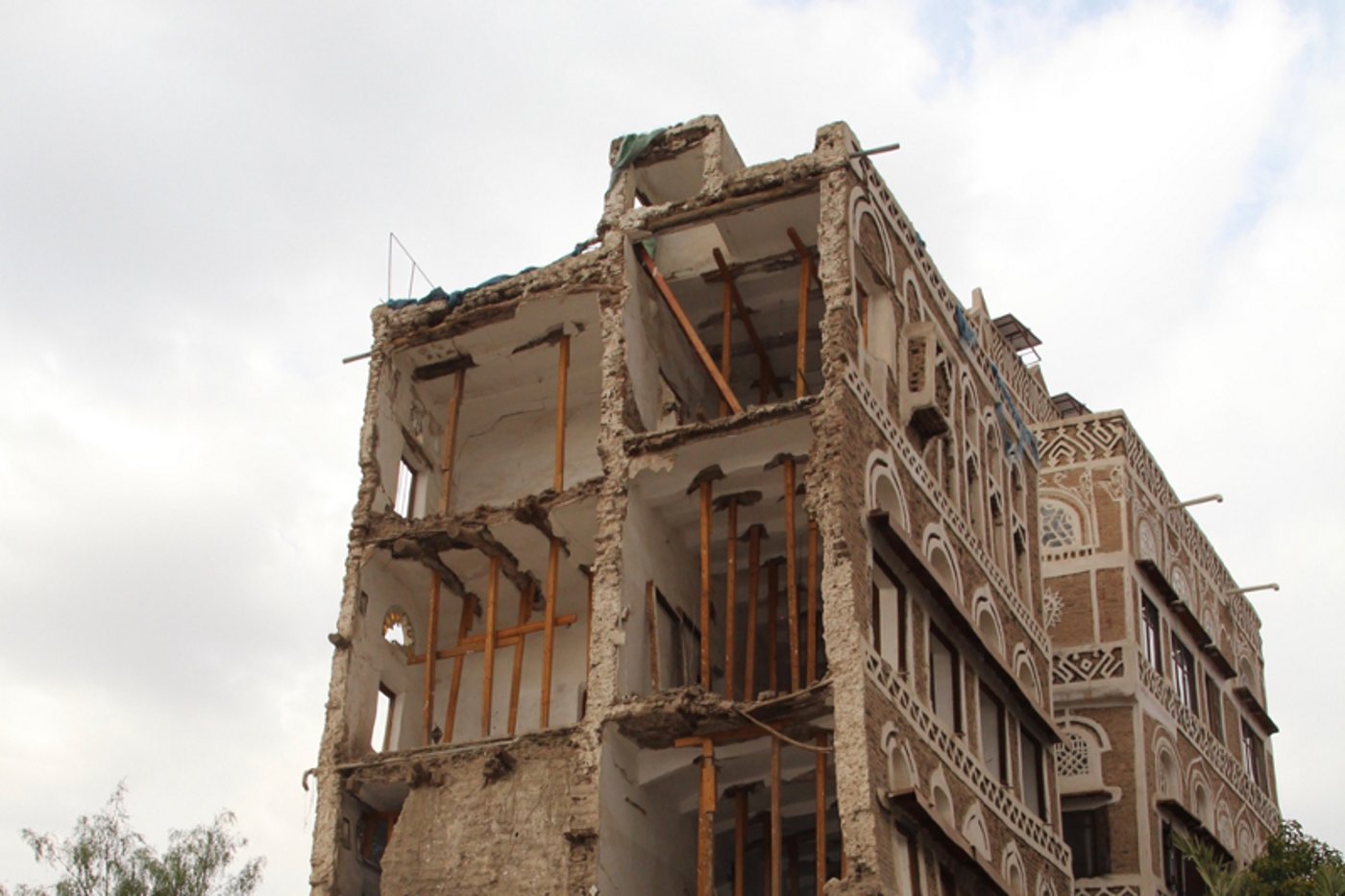
There are ruins, and there is rubble. Even in the heritage site and very much alive old city, there are ruins. A wall disclosing open rooms and shattered mudbricks is what is left of a line of five houses that used to be homes. At another spot within the densely populated neighbourhood, 11 family members died when a strike hit their house on 19 September last year. Factories and wedding halls, hospitals, homes, schools and roads across the capital and country have been demolished.
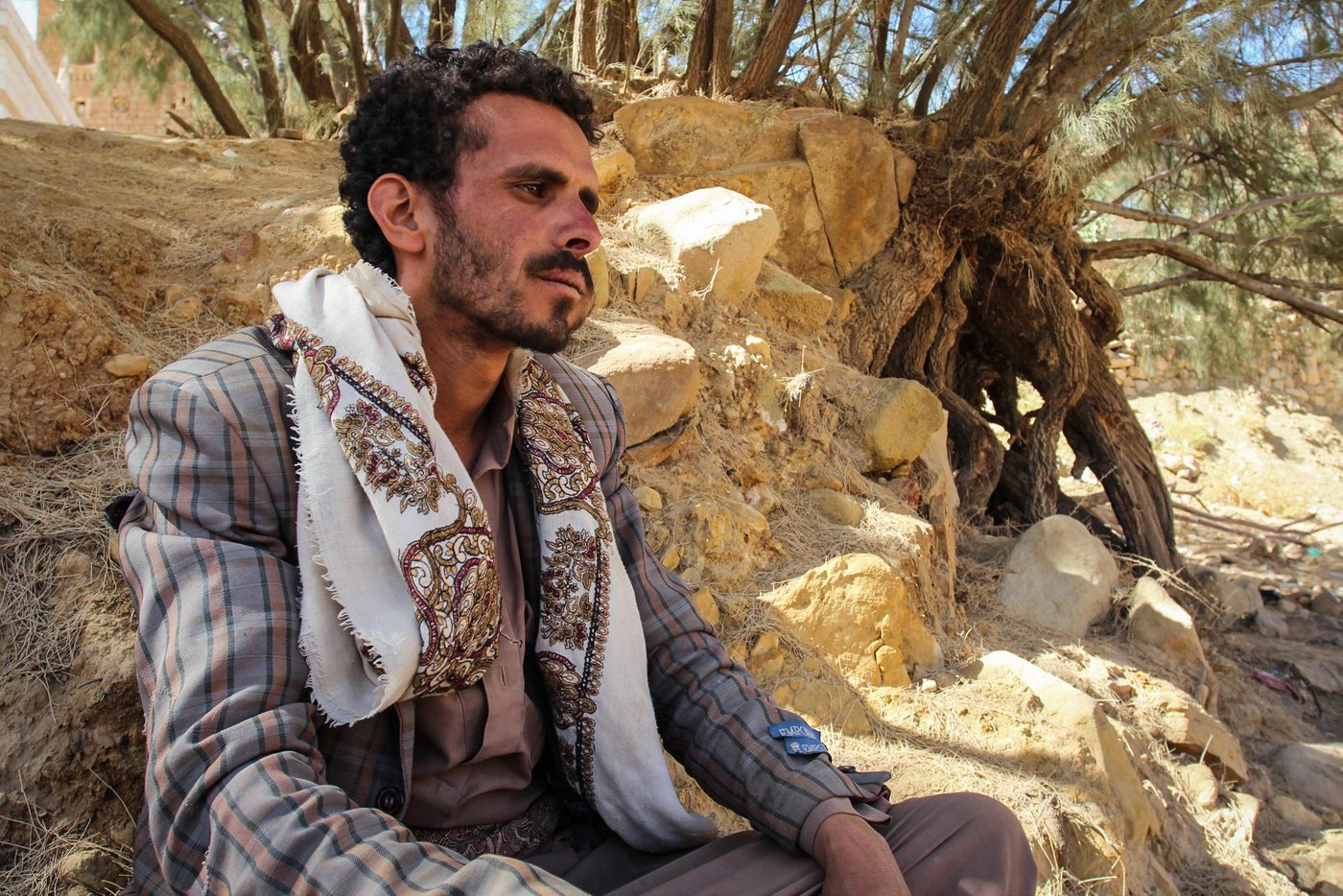
Loved ones under rubble
Rubble and ruins is also what is left of Mahdi’s life. While he was on duty as a guard a couple of kilometres away from his home, his wife brought him her last supper. She was fasting during the day, and broke fast with him at sunset. They had been married for eight months and were very much in love. Hours later, at 2 am, the hundred habitants of the small hilltop village, Jabal Ayoub, woke up to two airstrikes. Except four people who never were to wake up again; Mahdi’s wife, his cousin, as well as a toddler and a baby in the neighbouring house.
She was under the rubble. For what crime, for what reason? They killed my wife for no reason.Mahdi, widower
“I found my home destroyed. It was there just hours before, and then now, gone. Someone came and told me that my wife had died. She was under the rubble. For what crime, for what reason? They killed my wife for no reason. I feel devastated.” Mahdi’s voice gets shaky as he continues. “Now, I am desperate, whenever I remember what happened I feel empty. When I think about the future, I don’t see anything, I am lost.”
His deepest cut is not the rubble, but the wife that he found lifeless under it.
War is bombs, guns and explosions, violence that has taken a disproportional toll on civilians in this already impoverished country. But in Yemen, war is cutting through each family, each person, and the social fabric holding the country together.
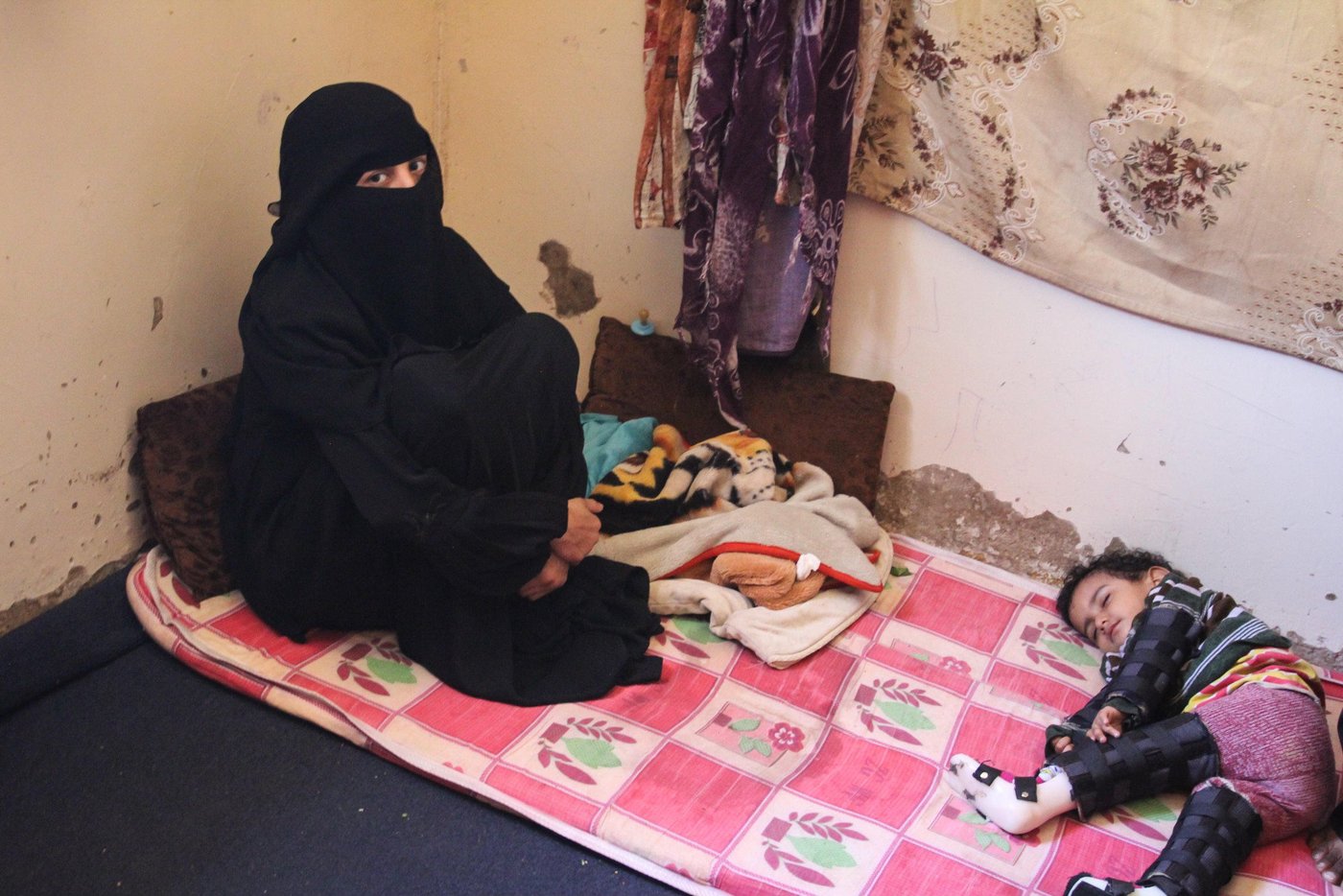
Displacement
More than two million people are living displaced from their homes within Yemen. One of the families forced to flee is Roua’a, her husband Abdo, and their four children Raed (10), Rub’a (8), Rahaf (2) and little newborn baby Rashad.
The family from Taiz used to have a good life. They moved to Hodeidah a while ago as Abdo got a job opportunity. He got a loan, bought a bus, and managed to earn them some money as a driver, although he had to pay mortgage.
Then the war came. Fuel prices kicked rocket high, as high as the rockets hitting their neighbourhood. Abdo had to sell the bus. Roua’a sold all her jewelry. Then there was nothing left to sell. They went hungry for some weeks, had to leave their rented home. Rahaf, the two-year-old daughter, got sick with a chronic muscular disease. Eventually they started asking for help, which painfully killed their pride.
I meet the family in a small fifteen square meters’ temporary home in Sana’a, where they all live. This is the same room in which their youngest was born just a month ago, with a neighbour to help with the delivery.
I talk with the children. Usually, in Yemen, my experience has been that many children are shy when talking with strangers, looking to their parents for approval for their few words. This family is different. The parents let their children speak. They are neat, articulated, they don’t say that they want to grow up being soldiers, but that they like arts and science.
The family is not used to being deprived. They don’t know how to survive being poor.
A mother, a father, and four children, including a one-month old baby, and a child who is sick and in pain.
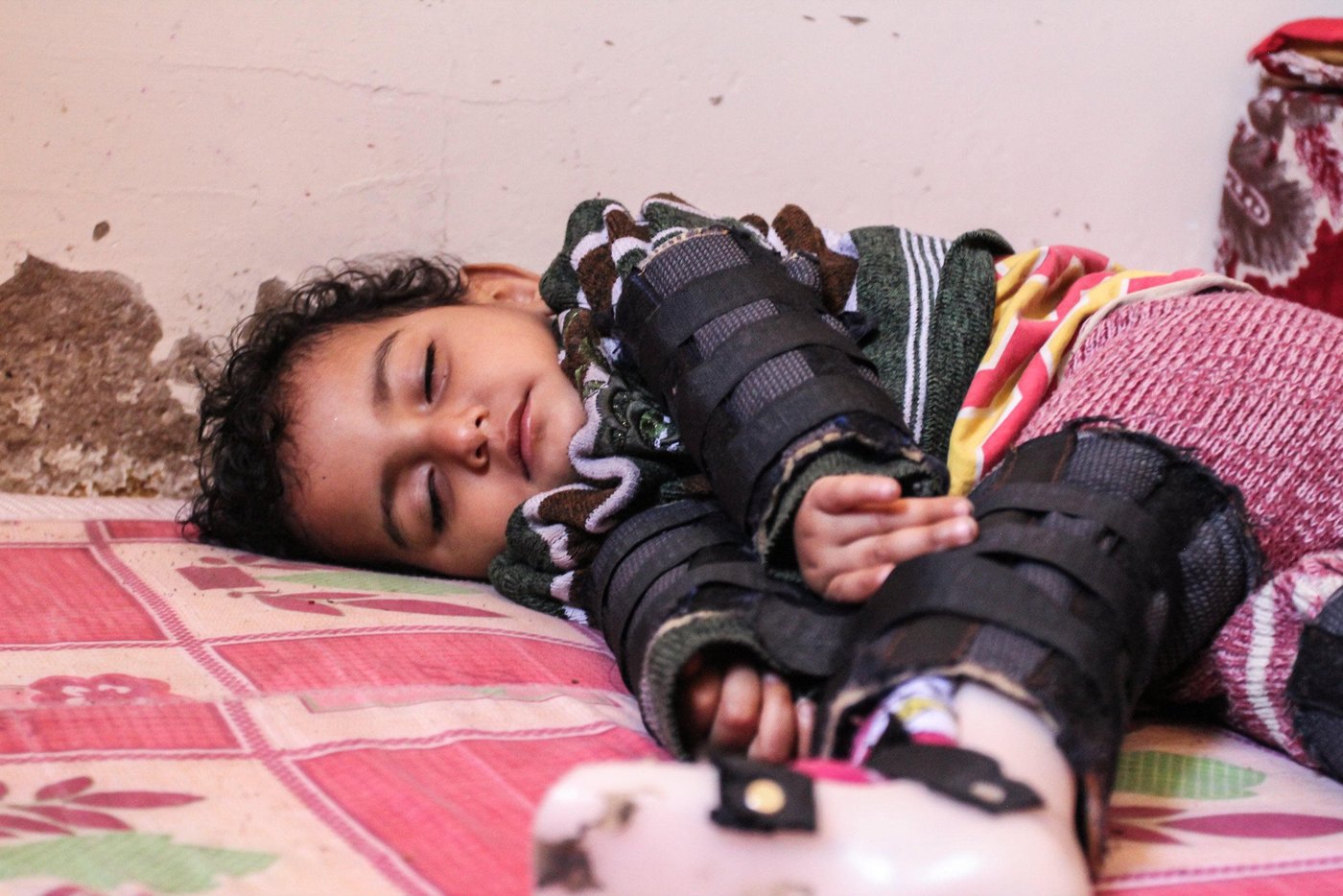
“Last month I could not afford the payment for Rahaf’s medicine, so her legs got really bad. The doctor hit the table with his fist, screaming at me: ‘Why didn’t you treat her, why didn’t you buy her medicine, you see now she is getting worse!’ He said that we should continue to give her medicine. It costs 35,000 (around 100$) every month, and we can barely get anything to eat for the other children. Last month I had to choose between starving my other children or treat her,” Abdo tells me.
I ask him how it feels to be a father in such a situation. In front of the family he says: “I would rather die than be in this situation. I have no hope.” His daughter Ruba’a looks at him with her big eyes, filled with sympathy, and with fear.
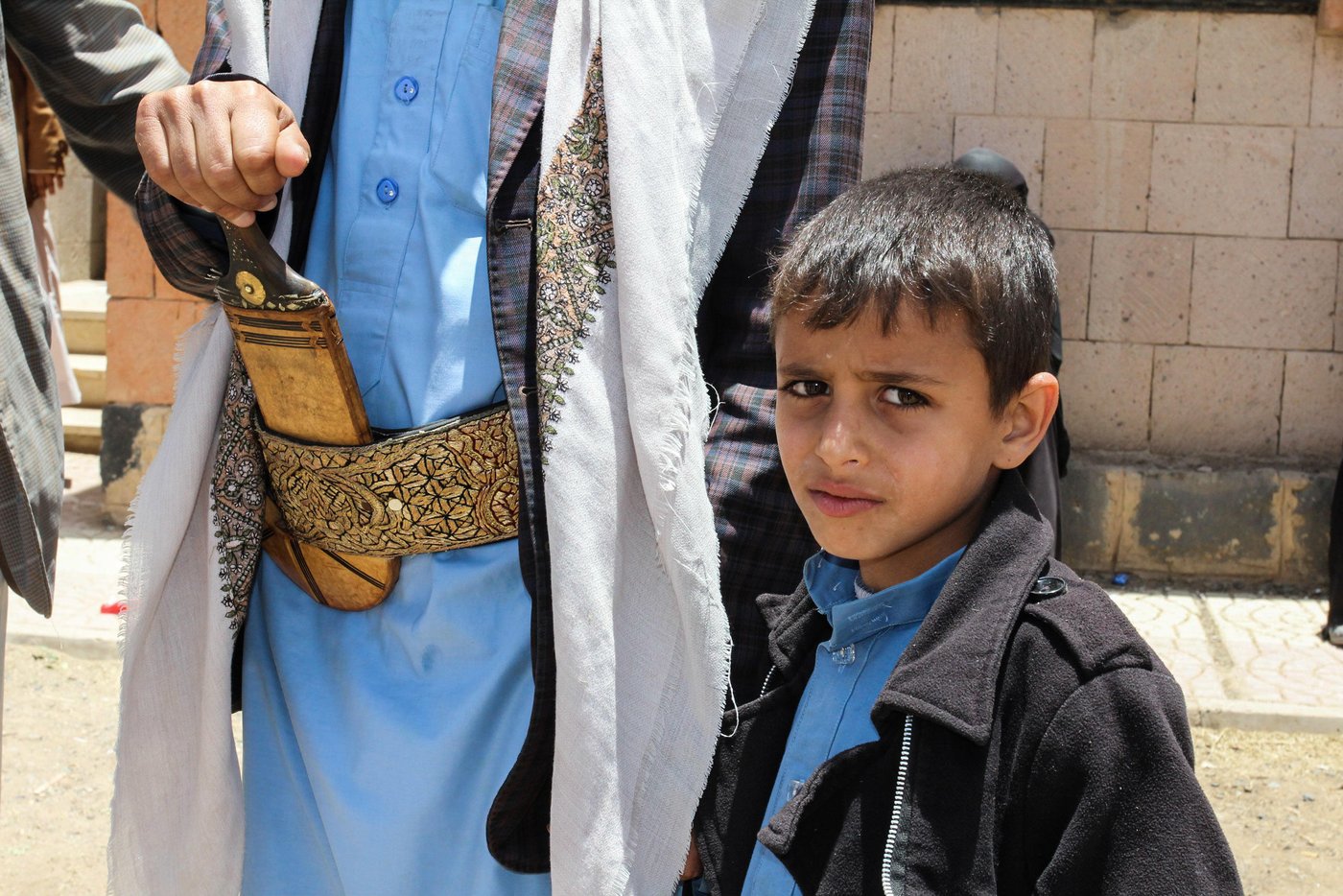
Another child in fear is eight-year-old Ali. He fled with his family to Sana’a from Nehem, or rather: Those who were left of his family fled. They had lived in a large family house — grandparents, uncles and aunties, cousins. On the 17 of February this year, airstrikes hit their home.
“It started at 4am. They continued to bomb us, there was no break, there was not even ten minutes between the strikes,” Amer, Ali’s father, tell me. After a horrifying hour, they woke up to find that 13 members of their extended family had died.
Now, Ali does not want to go to school anymore, if planes start rooving over the city, he runs home. He sticks around me all the time, he does not leave me out of sight.Amer, father of 8-year-old Ali
Amer lost both his parents, his sister and his daughter. Ali lost his big sister — the 16-year-old sister who always used to help him with his homework.
“Now, Ali does not want to go to school anymore, if planes start rooving over the city, he runs home. He sticks around me all the time, he does not leave me out of sight,” his father says.
“Tell your people, tell everyone, that we need help. But the most important thing is that this war ends. We want to go home, we want to continue our lives. At home, we never needed anything from anyone. Please, then, come back and visit us, we will give you food to eat and shelter, we will share all that we have with you,” Amer tells me.
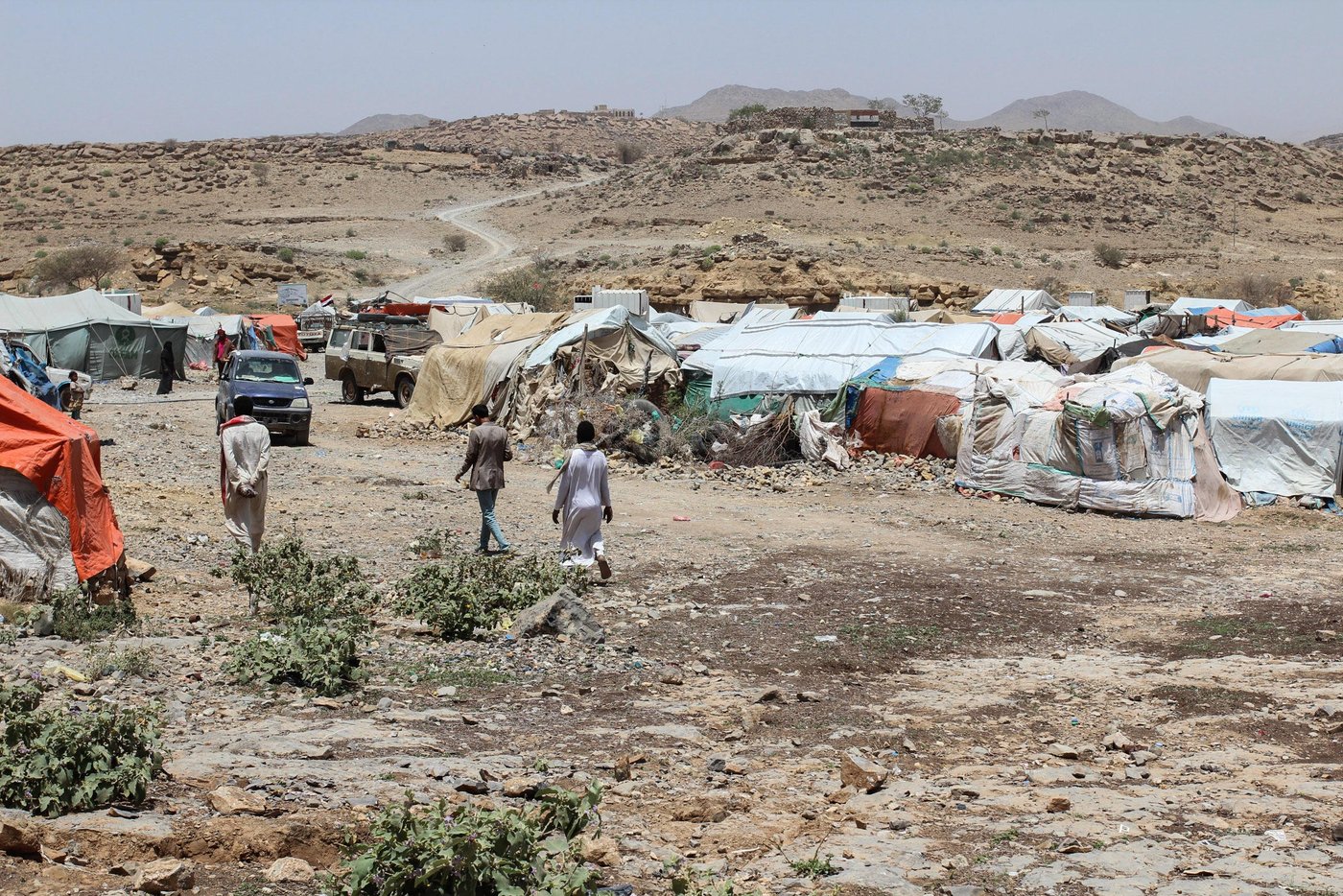
Collapsing economy and public sector
A blockade on imports and a collapse of the economy has left 1,2 million public servants without a salary for nine months. People who used to have good lives, an income, a home, are left with nothing to provide for their families, the so-called ‘new-poor’.
And then there is the pride. A colleague working for one of the international organizations in Sana’a says: “I am the only one in my building who has been able to pay the rent for the last six months. People who are very proud, who have never asked me for anything, who have been suffering for a long time, ask me for help. When they do, I know it is serious.” I can see on his face that the situation breaks his heart.
“One day I saw my neighbour across the street. He looked very troubled. He used to have a job, now he doesn’t. His wife had a job, now nothing. I knew he could not afford the rent. I told him: ‘We are neighbours, we have known each other for a long time, let me pay for you, then next time, it might be the other way around.’ He said no, he did not want to accept. He is suffering. They have four kids. They used to have a good life. I thought maybe he would call me the next day, to accept after all, many people do. But he didn’t. His pride and dignity prevents him. They have nothing. I see his kids going to the mosque to fill water as they can no longer afford the water bill.”
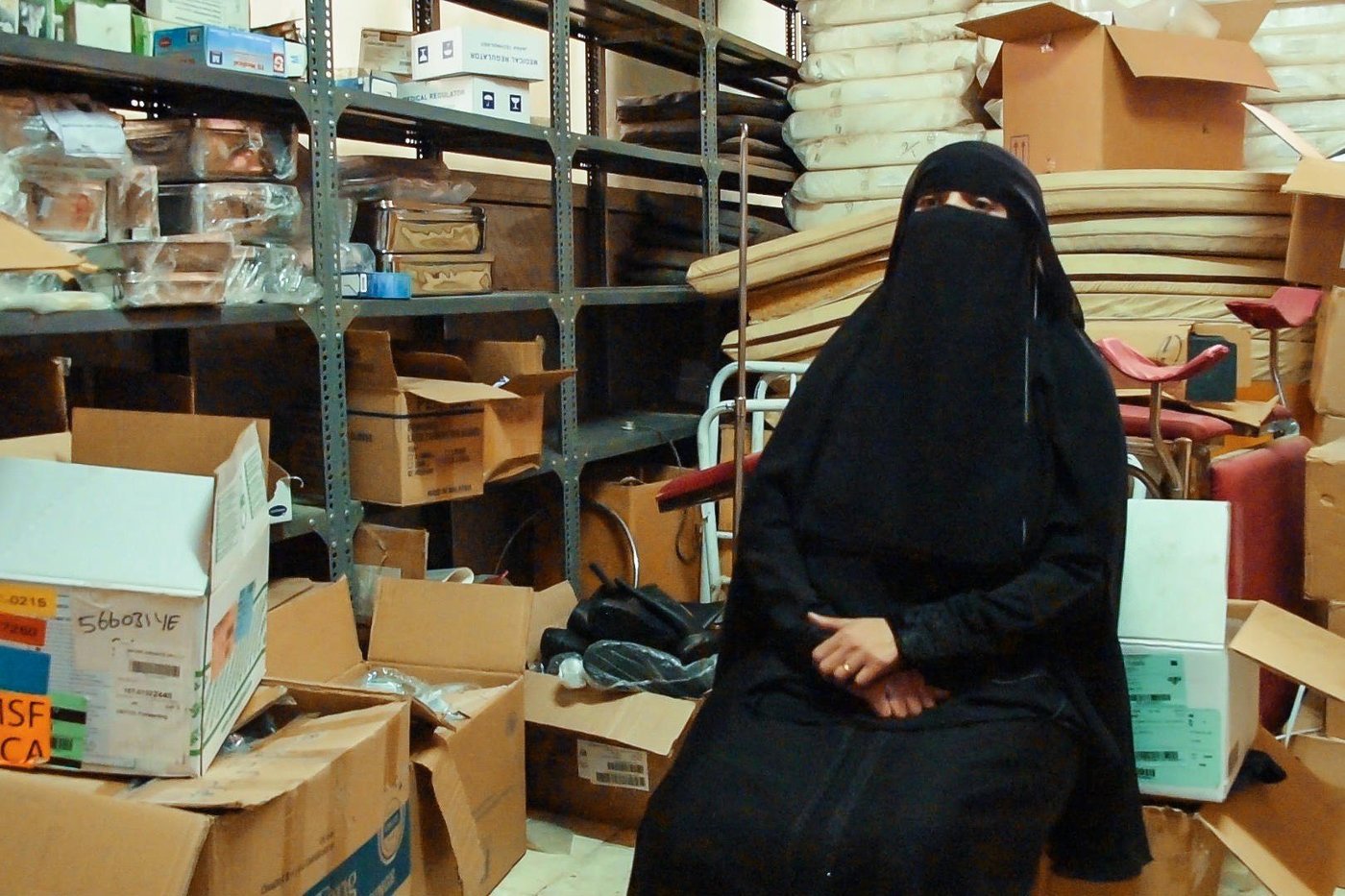
Fading healthcare
In addition to the burden that losses of income places on employees and dependents, public services disappear.
“Our tragedy now is that we cannot do our job the way we should, while we are struggling for our basic food. If the war continues and we keep being unpaid, we will have to flee to the villages. We will bring water from the well, plant, and live a simple life. We’ll have to flee from the cities,” says Dr Zikra Abdullah Saif, a warehouse officer of medical equipment at Sabaeen Hospital in Sana’a.
The question remains: Who is going to take upon them the job of doctors and nurses currently saving lives? Already, two years into the war, less than half of the health facilities are fully operational. Certain medicines are hard to get by. A recent and aggressive cholera outbreak is stretching the capacity of facilities even further.

Deprived of education
As the war continues, millions of children in Yemen, a country where only 60 per cent of the population could read and write before the war, are deprived of an education. In a settlement outside Houth I meet nine-year-old Obaid and his friend Modrek. They live here with their families, having fled from airstrikes in Sa’ada.
Obaid tells me that “before, I went to school, I like to study. But here there is no school.” He now spends his time collecting empty plastic bottles sold to be recycled. “If we collect one full, large bag, we get 150 Yemeni Reals,” says Obeid. That is around half a dollar.
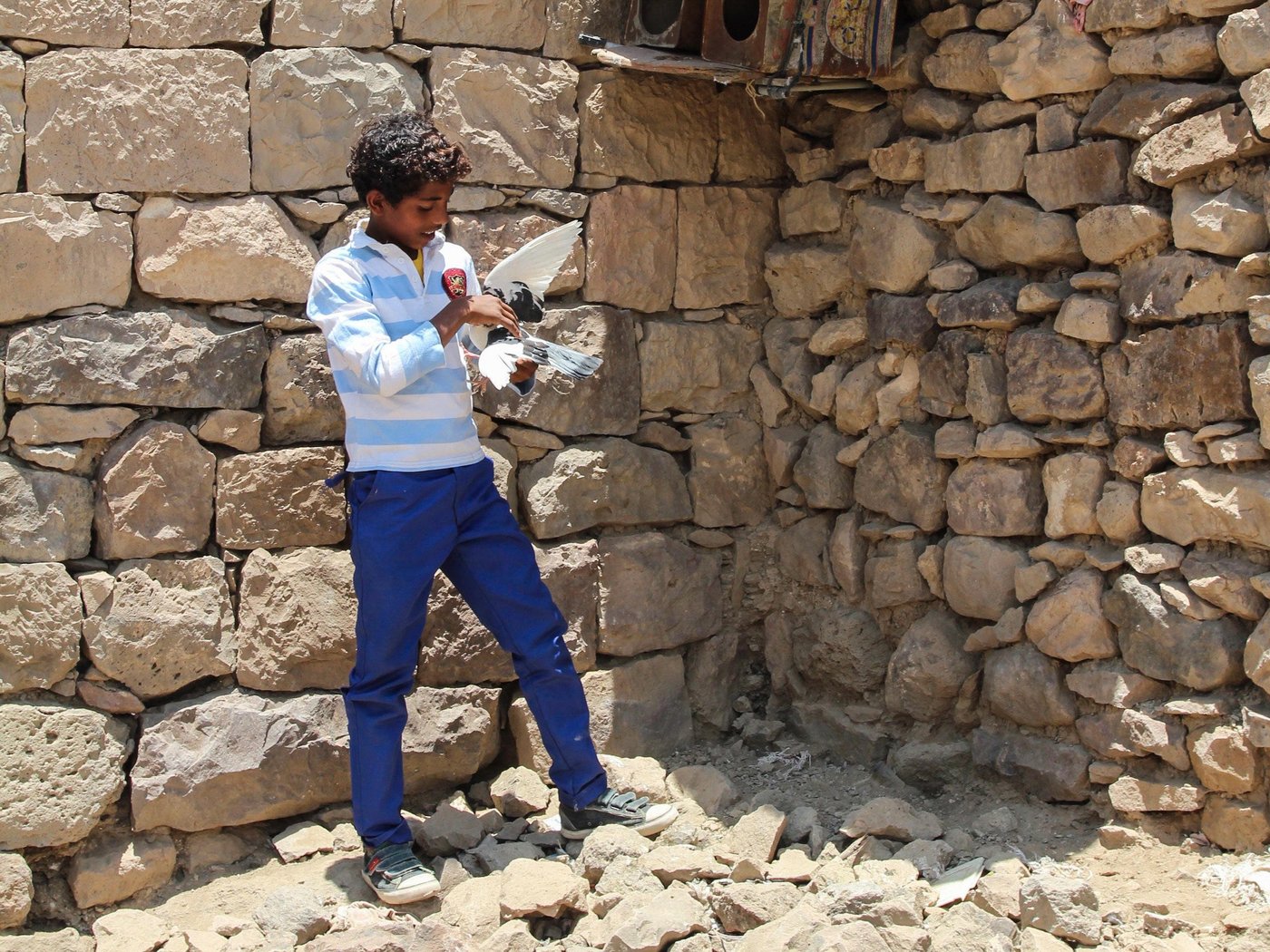
Another boy out of school is thirteen-year-old Laith. He lives in a village called Faj Attan, overlooking the capital Sana’a. The village was badly damaged early on in the war, but families have now returned, trying to re-build their lives. Houses are destroyed, children have been killed by unexploded remnants of war laying around where they play and walk to fetch water.
“Before we had teachers. Now we don’t,” Laith says. He wants to become a pilot so he can travel to many countries.
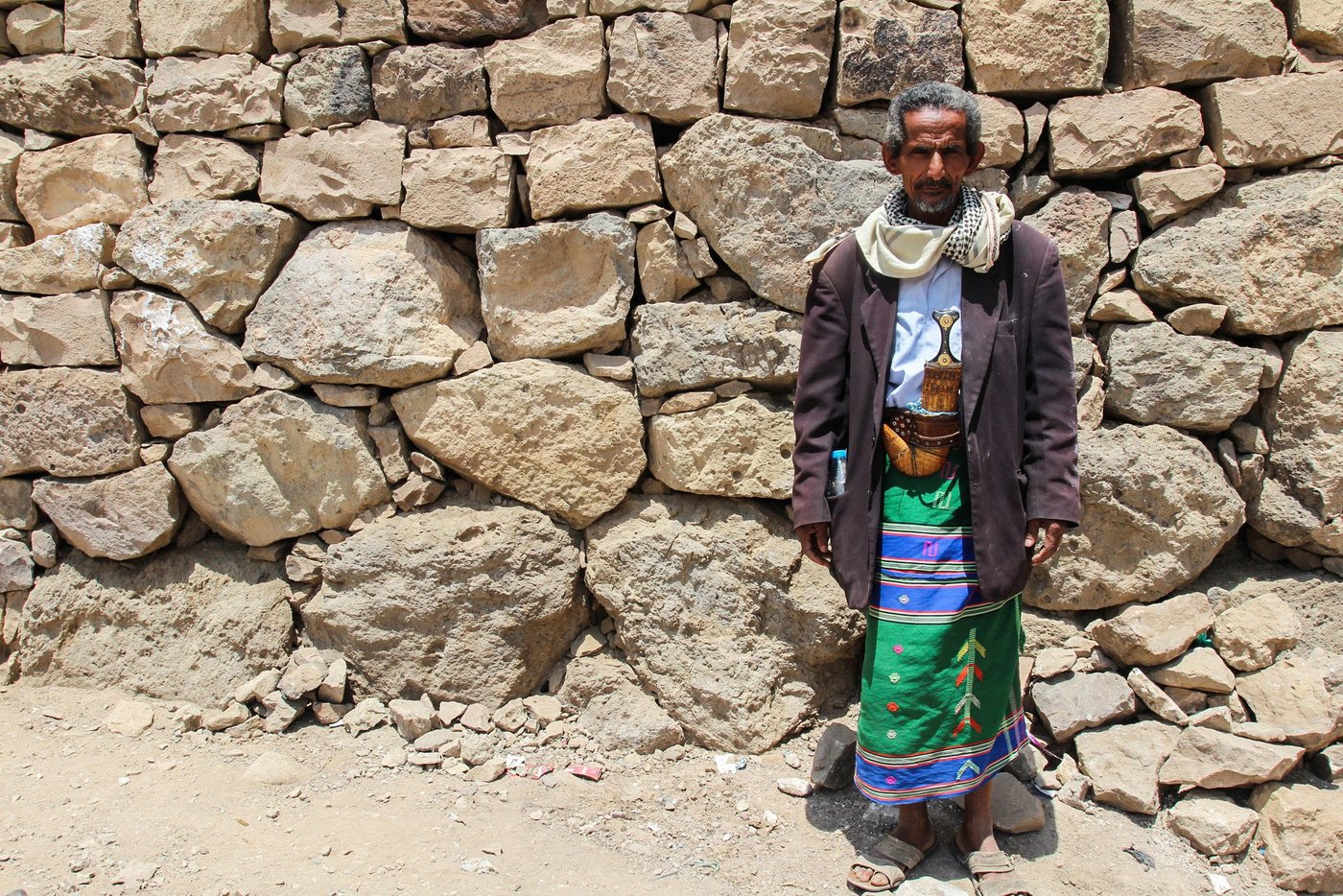
Strangled private sector
The private sector has also been strangled. Restrictions on import and increasing and unpredictable administrative requirements is making business more expensive than profitable. The little production that was in place is being destroyed.
“I used to have a job at a factory, I worked there for 11 years, but now it is bombed. We made plastic packing. In the big strike it was all damaged, all the machines, everything,” Omar tells me from his partly destroyed house outside Sana’a.
Driving northwards from Sana’a, we pass a cement factory that was bombed, snatching away the livelihood of hundreds of people. We also pass the shells of what used to be a chicken farm.
I used to have a job at a factory, I worked there for 11 years, but now it is bombed. We made plastic packing. In the big strike it was all damaged, all the machines, everything.Omar, factory worker
Except from the limited businesses in place, the farmers in the rural areas, the international aid organizations, and a few public servants that still get their paycheck, there are few options of making a living. Unless you are willing to join one of the armed groups paying whoever will carry their guns.

There is very little food
17 million people, or 60 percent of the population, are food insecure in Yemen, meaning that their access to food is fragile and unpredictable. This makes it the largest food security crisis in the world. Yemen used to import 80 percent of its food from outside. Now, imports are difficult and people are starving.
“We are tired, we are suffering and humiliated. We study, but we gain nothing, we work, and we gain nothing, what we can do?” asks Abdullah, a father from a hospital bed in Sana’a, where he has taken his five months old daughter Radwa. She is small and way too skinny, struggling to remain alive.
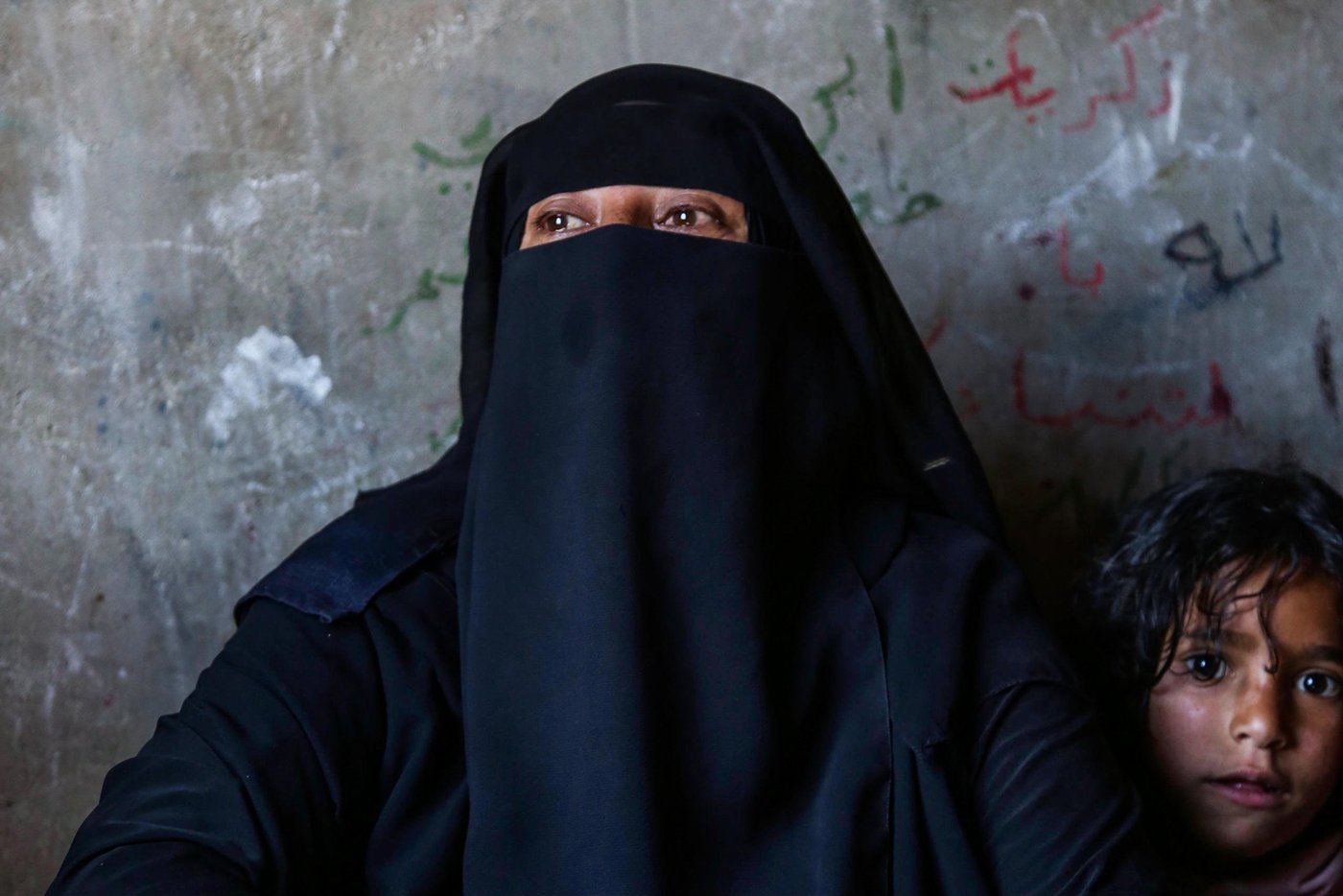
“I pray to God, please let us die or solve this, or let us die silently, let people wake up in the morning and find us dead. It cannot be worse than what we have been through already. We felt the hunger, we felt the cold, we have been through everything,” says Wedad, a single provider for four children in Amran, with very little to feed them.
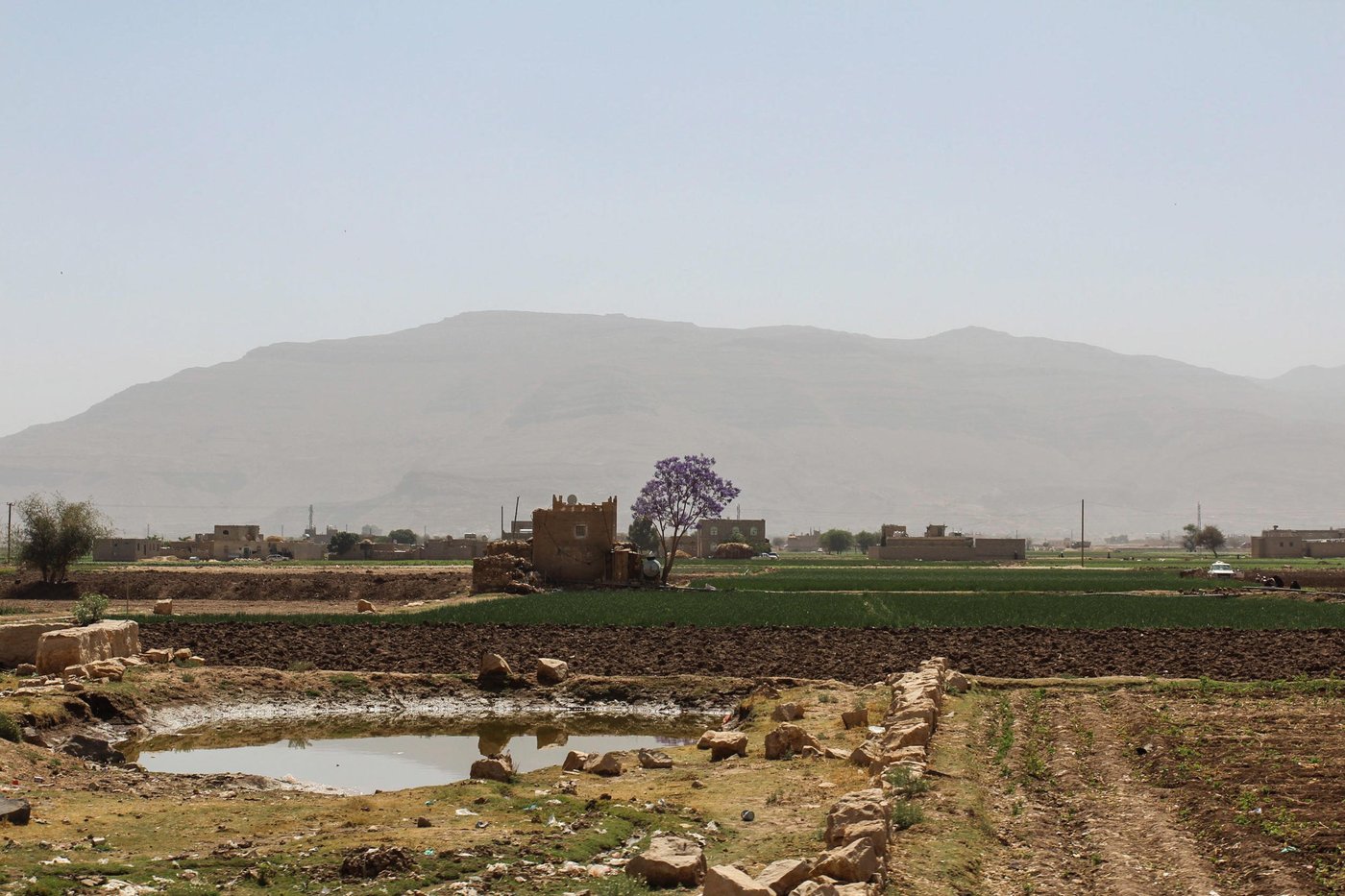
The capital is reaching a breaking point, only held back by a proud and generous population — for now. But for how long can such solidarity survive when all are draining their resources? Yemen was already before the war the poorest country in the region. Following two years of war, GDP per capita has further sunk by 35 per cent. The whole population is getting broke.
In many areas of Yemen, the breaking point has been a reality for months. Every ten minutes a child in Yemen dies because they do not get enough food to eat. In one day, that is 144 children. One-hundred-and-forty-four children dying of hunger every day in 2017, because of a war that can, still, be stopped by the will of a few powerful people, a will that seems to be shamelessly overshadowed by very different priorities of powerful nations. In the meantime, civilians in Yemen pay the price, increasingly with their lives.


